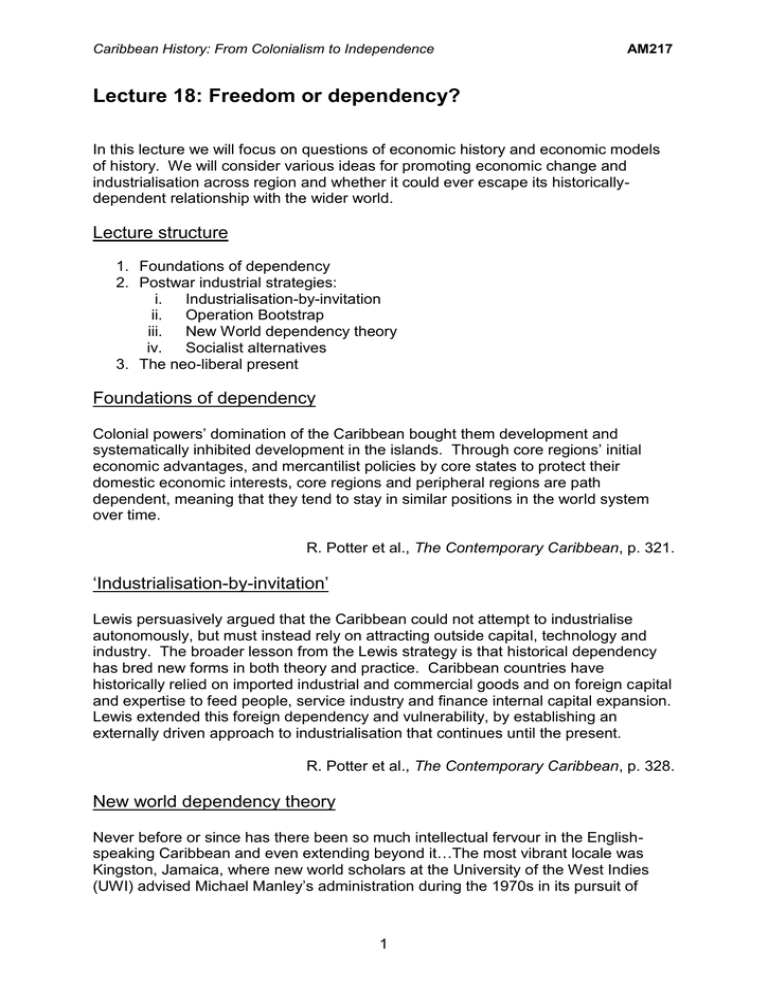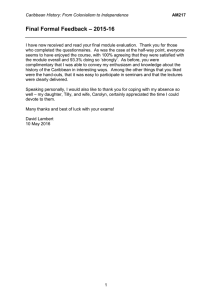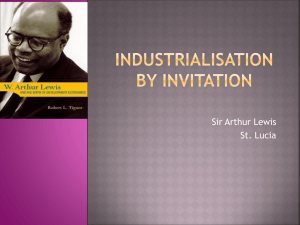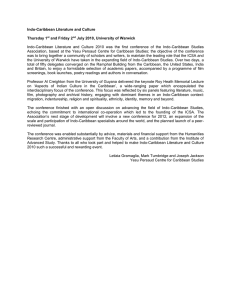Lecture 18: Freedom or dependency?
advertisement

Caribbean History: From Colonialism to Independence AM217 Lecture 18: Freedom or dependency? In this lecture we will focus on questions of economic history and economic models of history. We will consider various ideas for promoting economic change and industrialisation across region and whether it could ever escape its historicallydependent relationship with the wider world. Lecture structure 1. Foundations of dependency 2. Postwar industrial strategies: i. Industrialisation-by-invitation ii. Operation Bootstrap iii. New World dependency theory iv. Socialist alternatives 3. The neo-liberal present Foundations of dependency Colonial powers’ domination of the Caribbean bought them development and systematically inhibited development in the islands. Through core regions’ initial economic advantages, and mercantilist policies by core states to protect their domestic economic interests, core regions and peripheral regions are path dependent, meaning that they tend to stay in similar positions in the world system over time. R. Potter et al., The Contemporary Caribbean, p. 321. ‘Industrialisation-by-invitation’ Lewis persuasively argued that the Caribbean could not attempt to industrialise autonomously, but must instead rely on attracting outside capital, technology and industry. The broader lesson from the Lewis strategy is that historical dependency has bred new forms in both theory and practice. Caribbean countries have historically relied on imported industrial and commercial goods and on foreign capital and expertise to feed people, service industry and finance internal capital expansion. Lewis extended this foreign dependency and vulnerability, by establishing an externally driven approach to industrialisation that continues until the present. R. Potter et al., The Contemporary Caribbean, p. 328. New world dependency theory Never before or since has there been so much intellectual fervour in the Englishspeaking Caribbean and even extending beyond it…The most vibrant locale was Kingston, Jamaica, where new world scholars at the University of the West Indies (UWI) advised Michael Manley’s administration during the 1970s in its pursuit of 1 Caribbean History: From Colonialism to Independence AM217 democratic socialism…[A] range of policy priorities emerged, such as investing in land reform for small farmers, imposing a levy on the bauxite exported by foreign companies, empowering community councils, and committing to social welfare, redistribution and equality. R. Potter et al., The Contemporary Caribbean, p. 331. Export-processing zones Export-processing zones (EPZs) are labour-intensive manufacturing centres that involve the import of raw materials and the export of factory products. EPZs (more often called ‘free zones’ by their supporters) are extraterritorial sites in which manufacturing can proceed outside local regulations. EPZs have been created to streamline importing and exporting and to sidestep national laws that privilege some domestic social groups over foreign industrial exporters. Most of the new exportoriented manufacturing occurs in state-designated free zones. R. Potter et al., The Contemporary Caribbean, pp. 337-8. 2


